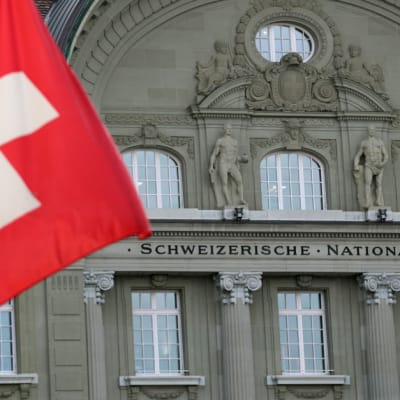- investment funds.
- Fixed Income.
- BulwarkBay - Emerging Local Currency Bond Fundamental, (EUR) N A


BulwarkBay
Emerging Local Currency Bond Fundamental
ISINLU0476249320BulwarkBay - Emerging Local Currency Bond Fundamental, (EUR) N A
ISINLU0476249320General information
| Morningstar | ||
| Asset Class | Fixed Income | |
| Category | Emerging markets | |
| Strategy | Global Fixed Income | |
| Fund base currency | USD | |
| Share Class reference currency | EUR Unhedged | |
| Benchmark | JPM GBI-EM Global Diversified EUR | |
| Dividend Policy | accumulated | |
| Total Assets (all classes) in mn | EUR 20.94 | 31.03.2025 |
| Assets (share class) in mn | EUR 3.19 | 31.03.2025 |
| Number of positions | 197 | 31.03.2020 |
| TER | 0.77% | 30.09.2024 |
| Swinging Single Pricing | Yes | |
Risk rating
Performance & Statistics
| As of |
| Share Class (Net) |
| Benchmark |
| As of |
| Share Class (Net) |
| Benchmark |
| As of |
| Share Class (Net) |
| Benchmark |
| Fund | Benchmark | |
|---|---|---|
| Total Return | 33.21% | 57.15% |
| Annualized Return | 1.89% | 3.00% |
| Annualized Volatility | 7.46% | 8.49% |
| Sharpe Ratio | 0.19 | 0.30 |
| Downside Deviation | 5.13% | 5.84% |
| Positive Months | 54.89% | 57.61% |
| Maximum Drawdown | -17.33% | -17.85% |
| Fund vs Benchmark | |
|---|---|
| Correlation | 0.915 |
| R2 | 0.838 |
| Alpha | -0.04% |
| Beta | 0.804 |
| Tracking Error | 3.43% |
| Information Ratio | -0.354 |
Key risks
The following risks may be materially relevant
but may not always be adequately captured by the synthetic risk indicator and may cause additional loss:
Credit risk: A significant level of investment in debt securities or risky securities implies that the risk of, or actual, default may have a material impact on performance. The likelihood of this depends on the credit-worthiness of the issuers.
Emerging market risk: Significant investment in emerging markets may expose to difficulties when buying and selling investments. Emerging markets are also more likely to experience political uncertainty and investments held in these countries may not have the same protection as those held in more developed countries.
Model Risk: Models may be misspecified, badly implemented or may become inoperative when significant changes take place in the financial markets or in the organization. Such a model could unduly influence portfolio management and expose to losses.
Highlights
BulwarkBay – Emerging Local Currency Bond Fundamental Fundamental is a long only emerging local bond fund launched in January 2010. The Fund is actively managed. The JPMorgan GBI-EM Global Diversified is used for performance and internal risk indicators comparison. The Fund invests in emerging market sovereign fixed income instruments denominated in local currency applying a best-in-class approach to Sustainable investing. It seeks to achieve higher risk-adjusted returns to widely used market-cap indices over the long term. The investment approach is two-fold: a disciplined analysis which differs from a traditional market-cap approach by allocating to countries based on macroeconomic indicators including extra financial data (i.e. ESG) ; and a fundamental sovereign analysis aiming to further mitigate countries’ default and investability risks as well as identify potential opportunities taking into account financial and extra-financial information. Risk management is performed by fund managers at a portfolio level, alongside independent teams who oversee investment risks and operational risks.
Breakdowns
Credit Ratings (in %)
| AA | 0.00% | 2.97% | |
| A | 0.00% | 34.72% | |
| BBB | 0.00% | 49.26% | |
| BB | 0.00% | 12.80% | |
| Liquid assets | 0.00% | 22.11% |
Maturities (in %)
| More than 10 years | 0.00% | 22.11% | |
| 1 to 3 years | 0.00% | 14.11% | |
| 3 to 5 years | 0.00% | 17.87% | |
| 7 to 10 years | 0.00% | 21.14% | |
| 5 to 7 years | 0.00% | 13.47% | |
| Liquid assets | 0.00% | 11.31% |
Countries (in %)
| Others | 0.00% | 21.65% | |
| Cash | 0.00% | 11.31% | |
| India | 0.00% | 11.31% | |
| China | 0.00% | 10.87% | |
| Thailand | 0.00% | 9.05% | |
| Brazil | 0.00% | 9.03% | |
| Indonesia | 0.00% | 7.67% | |
| Philippines | 0.00% | 6.90% | |
| Peru | 0.00% | 6.13% | |
| Malaysia | 0.00% | 6.08% |
Currencies (in %)
| Others | 0.00% | 27.37% | |
| INR | 0.00% | 11.31% | |
| CNY | 0.00% | 10.87% | |
| THB | 0.00% | 9.05% | |
| BRL | 0.00% | 9.03% | |
| IDR | 0.00% | 7.67% | |
| PHP | 0.00% | 6.90% | |
| PEN | 0.00% | 6.13% | |
| MYR | 0.00% | 6.08% | |
| MXN | 0.00% | 5.59% |
Managers


Legal information
General information
| Domicile | Luxembourg |
| Legal Form | SICAV |
| Regulatory Status | UCITS |
| Registered in | AT, CH, DE, ES, FI, FR, GB, IT, LI, LU, NL, NO, SE |
| Class launch date | 09.03.2010 |
| Close of financial year | 30 September |
| Dividend Policy | accumulated |
Fiscal Information
| DE Investmentsteuergesetz (InvStG) | Other Funds |
| AT Investmentfondsgesetz (InvFG) | Declared Fund |
| UK Reporting Status | No |
Management Company & Agents
| Management Company | BulwarkBay Funds (Europe) S.A. |
| Custodian | CACEIS Bank, Luxembourg Branch |
| Auditor | PricewaterhouseCoopers |
| Portfolio valuation | CACEIS Bank, Luxembourg Branch |
Dealing
Dealing
| Subscriptions and redemptions frequency | daily |
| Subscriptions and redemptions cut-off day | T-1 |
| Subscriptions and redemptions cut-off time | 15:00 CET |
| Subscriptions and redemptions settlement date | T+2 |
| NAV valuation point | T |
| NAV calculation day | T+1 |
| NAV calculation frequency | daily |
| Minimum Investment | CHF 1'000'000 or eq |
| Management Fee | 0.60% |
| Distribution Fee | 0.00% |
Security Numbers
| BLOOMBERG | LOEMBIE LX |
| ISIN | LU0476249320 |
| REUTERS | 10845422X.CHE |
| SEDOL | BD7VK84 |
| TELEKURS | 10845422 |
Prices
Prices over selected period
| Last | EUR | 0.00 | 13.32 | 24.04.2025 |
| First | EUR | 0.00 | 10.00 | 25.01.2010 |
| Highest | EUR | 0.00 | 14.23 | 19.02.2020 |
| Lowest | EUR | 0.00 | 10.00 | 25.01.2010 |
Documents
Legal Documents
Newsletter
Review
The average yield of the JP Morgan Global EM Diversified index declined slightly in March, ending the month at 6.30%. The 10-year UST yield was on balance unchanged at 4.20%.
In the FX market, the USD was weaker again and many EMD currencies strengthened against the USD in March.
Most emerging bond markets posted positive returns, with the exception of Turkey and Colombia.
Turkish assets were under intense pressure due to the arrest of Istanbul Mayor Ekrem Imamoglu, President Erdogan's main political rival. The TRY fell more than 10% as a result of the political unrest.
Colombia was negatively impacted by political unrest after the resignation of Finance Minister Diego Guevara. Fitch Ratings also lowered its credit outlook from stable to negative while maintaining a BB+ rating.
Performance
Emerging bond yields in local currency were almost unchanged on balance in March, resulting in a slightly positive return in local terms. The return of the JP Morgan Global EM Diversified index was also higher in USD terms as most EMD currencies strengthened against a weaker USD.
Romania (4.37%), India (4.18%) and Brazil (3.84%) were the best performers in the Fund, while Turkey (-16.09%) and Colombia (-4.01%) fared worst.
Our overweights in India and Brazil and underweight in Turkey had a positive impact on relative returns, while the overweights in Colombia and Peru detracted.
Outlook
While control of both Congress and the White House gives the new US administration a clear mandate, the extent and timing of the rollout of Trump’s flagship policies, including import tariffs, remain unclear. Given the uncertainties, the risk of non-linear outcomes is higher than usual.
The impact of the higher-than-anticipated import tariffs announced on 2 April might lead to a large growth shock, hurting export and commodity prices, if they are indeed implemented as announced, and could result in a trade war.





